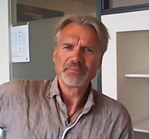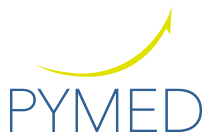 Dentro de la serie de Seminarios de Investigación que organiza el Grupo de Investigación PYMED, es un gran orgullo poder recibir al Profesor Marco van Gelderen, de la Vrije Universiteit Amsterdam (Países Bajos).
Dentro de la serie de Seminarios de Investigación que organiza el Grupo de Investigación PYMED, es un gran orgullo poder recibir al Profesor Marco van Gelderen, de la Vrije Universiteit Amsterdam (Países Bajos).
El seminario versará sobre el tema: «Using a comfort zone model and daily life situations to develop enterprising competencies»
Se celebrará el próximo miércoles 2 de febrero a las 12.30h en el Seminario Joaquín Guzmán del Departamento Economía Aplicada I (3ª planta de la Facultad de CC. Económicas y Empresariales), y será impartido en inglés. El seminario será presencial, aunque con retransmisión virtual simultánea.
El Prof. van Gelderen permanecerá varios días en la Universidad de Sevilla realizando una breve estancia de investigación en el grupo PYMED. El Prof. van Gelderen estaría encantado en mantener encuentros con investigadores y estudiantes de doctorado del centro para conocer detalles de vuestras líneas de investigación, y ver si puede ser de alguan ayuda. Cualquier investigador interesado puede contactar con el Prof. van Gelderen directamente o a través del correo del grupo: pymed@us.es . Puede consultar más información sobre el Prof. van Gelderen aquí: https://research.vu.nl/en/persons/marco-van-gelderen
Abstract
This presentation reports on an experiential education program for university students aimed at the development of enterprising behaviour in daily life: individual level soft skills conducive to entrepreneurship, yet studied and practiced in non-business settings. In a nutshell, participants receive a set of eight to ten different challenges, which are not revealed until the exercise starts, which they work on for one or two days full time. Each challenge allows participants to practice the competencies of generating ideas for opportunities, taking action, perseverance, networking and network utilization, teamwork, and convincing others. The format is based on a comfort zone model. This paper reports on a qualitative analysis of the experiences of 202 participating students in 21 courses in 5 countries, reported in individual reflections, to to provide evidence for the types of learning which result. Key to learning is the element of surprise. Adaptation of current beliefs occurs when participants leave their comfort zone and have experiences that surprise them, leading to novel realisations.



